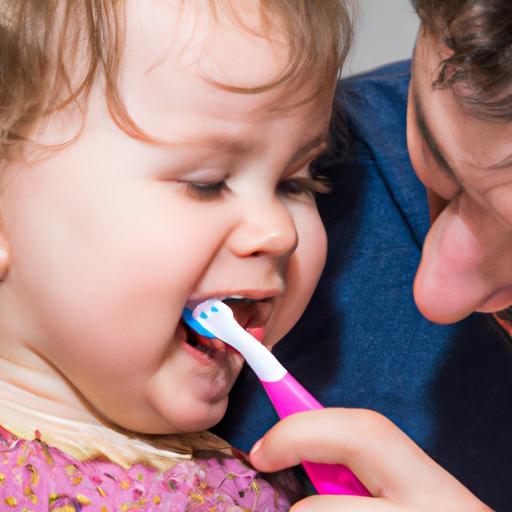Discover essential tips and techniques for maintaining optimal infant oral hygiene. Learn how to establish a routine and prevent common oral health issues.
Introduction
Infant oral hygiene is a crucial aspect of your child’s overall health and well-being. As parents, it is our responsibility to establish good oral care habits for our little ones right from the start. Neglecting oral hygiene in infancy can lead to a myriad of oral health problems, including tooth decay, gum disease, and even speech development issues later on. In this article, we will guide you through the essentials of infant oral hygiene, providing you with practical tips and insights to ensure your child’s oral health is on the right track.

Establishing a regular oral hygiene routine is essential for infants.
Establishing an Oral Hygiene Routine for Infants
The journey to a healthy smile begins with establishing a consistent oral hygiene routine for your infant. While you may wonder when to start this routine, the American Academy of Pediatric Dentistry recommends beginning oral care as soon as your baby’s first tooth erupts. However, even before that, you can gently wipe your baby’s gums with a clean, damp cloth to remove any bacteria or milk residue.
Choosing the Right Tools for Your Baby’s Teeth
When it comes to selecting the appropriate tools for your baby’s oral care, opt for a soft-bristled infant toothbrush specifically designed for delicate gums. The toothbrush should have a small head and a comfortable grip for easy maneuverability. As for toothpaste, make sure to use a fluoride-free toothpaste until your child reaches the age of two, as excessive fluoride intake during infancy can lead to fluorosis.
Proper Techniques for Brushing Your Infant’s Teeth
Brushing your baby’s teeth can be an adventure on its own. Begin by applying a small smear of toothpaste on the toothbrush and gently brush the teeth using small circular motions. Pay careful attention to the gum line, as bacteria can accumulate there too. As your child grows, you can gradually increase the amount of toothpaste to a pea-sized portion. Remember to brush your child’s teeth twice a day to maintain optimal oral hygiene.
Tips for Maintaining Good Oral Hygiene in Infants
Maintaining good oral hygiene in infants goes beyond just brushing their teeth. Here are some additional tips to further enhance their oral health:
The Impact of Breastfeeding on Oral Health
Breastfeeding plays a crucial role in nurturing your baby’s overall development, including their oral health. The act of breastfeeding stimulates the production of saliva, which helps neutralize harmful acids and combats bacteria in the mouth. Additionally, breastfeeding helps in the proper development of your baby’s jaw, facilitating the growth of healthy teeth.
Introducing Healthy Eating Habits
As your child starts exploring solid foods, it is essential to introduce a balanced diet that promotes oral health. Incorporate a variety of foods rich in vitamins and minerals, such as fruits, vegetables, whole grains, and dairy products. Limit the consumption of sugary snacks and beverages, as they can contribute to tooth decay. Encourage your child to drink water after meals to rinse away food particles and maintain saliva flow.
Fluoride Supplements and Water
Fluoride is a mineral that helps strengthen tooth enamel and prevents tooth decay. Depending on the fluoride levels in your water supply, your pediatrician or dentist may recommend fluoride supplements to ensure your child receives adequate fluoride intake. If the fluoride content in your tap water is already sufficient, there may not be a need for supplements. Consult with your healthcare provider to determine the best course of action.
Regular Dental Check-ups for Infants
The American Academy of Pediatric Dentistry suggests scheduling your child’s first dental visit within six months after the first tooth erupts, or no later than their first birthday. These early visits allow the dentist to monitor your child’s oral health, identify any potential issues, and provide guidance on proper oral care techniques. Regular dental check-ups are crucial in preventing and addressing oral health problems at an early stage.
Common Oral Health Issues in Infants and How to Prevent Them
Despite our best efforts, infants may still encounter certain oral health issues. Here are some common problems and preventive measures:
Early Childhood Caries (Tooth Decay)
Tooth decay, also known as early childhood caries, can affect infants as soon as their first tooth emerges. It occurs when bacteria in the mouth interact with sugars from food or drinks, leading to the formation of acids that erode tooth enamel. To prevent tooth decay, avoid putting your child to bed with a bottle containing anything other than water, as prolonged exposure to sugary liquids can be detrimental to their teeth. Encourage regular brushing and visit the dentist for professional guidance.
Teething Discomfort
The teething phase can be challenging for both infants and parents. Babies may experience discomfort, irritability, and excessive drooling during this period. To alleviate teething discomfort, you can offer your child a chilled teething ring or a clean, wet washcloth to chew on. Avoid using teething gels or numbing agents without consulting your pediatrician or dentist, as they may not be entirely safe for your baby.
Thumb-Sucking and Pacifier Use
Thumb-sucking and pacifier use are common self-soothing methods for infants. However, prolonged and intense sucking can lead to dental problems, including misalignment of teeth and jaw. It is advisable to gradually wean your child from these habits by the age of three. Encourage alternative comforting techniques and consult with your pediatric dentist for additional guidance.
Conclusion
Caring for your infant’s oral health is a vital aspect of their overall development. By establishing good oral hygiene habits early on, you can lay the foundation for a lifetime of healthy smiles. Remember to start oral care as soon as the first tooth appears, choose appropriate tools, and practice proper brushing techniques. Additionally, focus on breastfeeding, maintain a balanced diet, and schedule regular dental check-ups. By following these tips and preventive measures, you can help protect your child’s precious smile and set them on the path to optimal oral health.
For more detailed guidance on oral hygiene practices for infants, visit BestWaterFlosserHQ.






